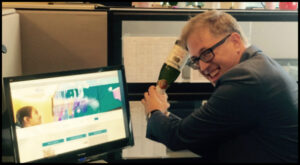 My July column focused on what I see as the adverse effects of academic medical faculty practice fund flows on primary care training and on academic and community primary care practice.
My July column focused on what I see as the adverse effects of academic medical faculty practice fund flows on primary care training and on academic and community primary care practice.
 My July column focused on what I see as the adverse effects of academic medical faculty practice fund flows on primary care training and on academic and community primary care practice. I used the phrase “whole doctor” to describe the primary care practitioner (PCP) and the nature and style of primary care practice that the literature reports patients, physicians, analysts, and policy makers find desperately lacking in primary care as it is commonly practiced today.
My July column focused on what I see as the adverse effects of academic medical faculty practice fund flows on primary care training and on academic and community primary care practice. I used the phrase “whole doctor” to describe the primary care practitioner (PCP) and the nature and style of primary care practice that the literature reports patients, physicians, analysts, and policy makers find desperately lacking in primary care as it is commonly practiced today.
In addition to improved patient care, advanced technology will drive demand for a mind- and curriculum-shift in medical education and residency training that recognizes that much of the patient care referred by PCPs to other physicians or diagnostic laboratories and imaging facilities can, in fact, be handled by PCPs. Medical schools and their faculties must make this shift to ensure that contemporary training in primary care stays relevant to practice and in compliance with the ACGME’s “Next Accreditation System” that became effective July 1.
Referrals to diagnostic laboratories by PCP’s (and other physicians) should drop precipitously when the “lab on a chip” is widely adopted and CBCs, urinalyses, and other commonly ordered tests can be done in the office/clinic/ED while the patient is present. Clinical labs, technicians, supervising clinical pathologists, and their costs will decrease significantly.
Imaging referrals will drop, too. Many years ago, chest x-rays using relatively inexpensive fluoroscopy migrated from PCP hands to radiology departments, in part because many radiologists resisted teaching primary care residents the skills necessary for basic X-ray use and interpretation. As one example of recent technological advances available to PCPs, the hand-held General Electric V-Scan ultrasound device requires no special technical skill to use or interpret the scan. Its initial cost of $4,000 is about the same as the costs for up to four conventional ultrasound studies done in an imaging center.
This is just the beginning of big changes in imaging science and economics. Currently available technology makes available multi-dimensional, color, manipulable visualizations of any standard, conventionally acquired images from molecular to whole body scales in any format from 8×12 feet to a surgical table, a computer monitor, a tablet, or a smart phone. An MRI device about the size of a smart phone is expected to be on the market by 2020.
From 1999-2009, referrals from PCPs to other physicians increased from 81 to 105 million per year, or 159 percent. If comparable 1970s data were available, the 40-year growth in referrals from PCPs to other physicians likely would be astonishing. It denotes a change in the philosophy and content of primary care training and practice over the decades, not just changes in the complexity and density of medical knowledge. “Whole” PCPs trained to provide “high-value primary care” could put the referral numbers back in perspective, at least, and might encourage other forward thinkers to adopt the position held by St. Barnabas Hospital in the Bronx, where an inpatient admission is viewed as a failure of the health system.
Currently available, inexpensive, and highly effective “mobile medicine” devices, including 20,000 smartphone apps, will enable PCPs to provide higher-value care at greater convenience to patients and at lower overall cost. Apps are available to help patients with everything from managing glucose levels, to counting calories and carbohydrates, to measuring and recording blood pressure, and that is just scratching the surface.
An app is under development that enables parents or other caregivers to magnify the image of a child’s eardrum, determine whether an infection is present, and assist in making the decision to treat or to seek medical treatment, perhaps by transmitting the image to the PCP’s location where it can be interpreted by a non-physician provider or the primary care doc.
In February, Eric Topol, MD, demonstrated a smartphone EKG app on NBC’s “Rock Center.” It costs $199, about a quarter of the price for a single EKG using current technology. Note to the future: No EKG tech, no EKG lab, no hospital visit, no inconvenience to the patient, and, indeed, no cardiologist required to read the EKG, iftraining for high-value primary care were a principal goal of internal medicine, family medicine, and pediatric residency programs. Topol also described a patient-friendly non-invasive glucometer, devices for measuring and monitoring vital signs, and even a mobile ICU monitor, all of which communicate wirelessly with the patient’s EHR. Watch for several of these devices to be combined into a single device the size of a watch that will be available soon.
The hardy souls who chose primary care specialties in the 2013 residency match should make sure their training fully prepares them for a career in technology-supported high-value primary care. Time is of the essence. The rapid democratization of technology will have these apps and devices in the hands of patients before those residents complete their training.
(PCP / shutterstock)









